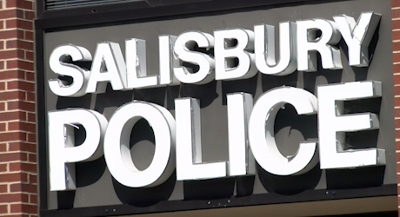SALISBURY, Md.- The Salisbury Police Department has a new tool in an effort to decrease crime. The department has partnered with an organization called Sante, which connects people with run-ins with the law with long-term solution resources. For several weeks after a call, these 'co-responders' will meet with people to connect them with resources like homeless shelters, food banks or outpatient clinics. Captain Howard Drewer of the Salisbury Police Department say this is a newer approach by the department.
"The concept is to actually look at a lot of the incidences deeper than what we have traditionally done in the past. We started off with just making contact with a lot of people in the communities between homeless and some people you have might’ve seen along the roadway but we have developed it and looking into our various incidences that we take reports on and if we identify a mental health component or a behavioral component, we utilize this team as a follow ups to meet with the person, not for the criminal aspect but actually for behavior health to provide resources for the individual," said Drewer.
Drewer says the department pursued this partnership after officers had noticed the connection between mental health and crime.
"We’ve seen a lot over the last few years where behavioral health has had an impact on criminal activity and a lot of the things that we’re looking at is recidivism this is just one component that we look at that affects recidivism," said Drewer.
Captain Drewer says the program started slow but it is picking up. Allison Hunter-Jacobs with Sante says her team is able to help a range of people.
"So far we responded mostly to adults, but we could also respond to children who are having outbursts and problematic behaviors in the home that’s causing conflict between the parent and the child. We could respond to domestic incidences that are between spouses or partners, we could also respond to elderly folks who are showing dementia like behaviors. So really anything that could be related to your mental health or or your mental illness, we are kind of a jack of all trades and try and cover all of that," said Hunter-Jacobs.
Following a call, co-responders will meet with individuals to connect them with resources on the Eastern Shore.
"We do both follow-ups face-to-face by going back out and meeting with them in their homes, but we also do follow-ups by phone to check in with them that way as well. We’re connecting them to the outpatient clinics that we have here in our area for a mental health treatment or substance use treatment but really we could help with any type of resource. If people need to be connected to a primary care provider if they needed to be connected to social services or financial benefits or food pantries or those types of resources as well we also referred to the city of Salisbury‘s homeless services program for the folks that are homeless. We kind of pride ourselves on being kind of the experts of all the resources that are available. We can't provide all the services ourselves, but we can get people connected to where they need to be," said Hunter Jacobs.
Ultimately, it is another tool for the Salisbury Police.
"This program is kind of added another tool into the toolbox so people won’t have just access to the hospital if they have a behavioral health crisis, we can actually respond out with them in the community on the scene and do a full assessment of the person and their needs and then make a plan moving forward of what they really need to help with their situation," said Hunter-Jacobs.
Captain Drewer says as of late March, co-responders are only meeting with people weeks after a police response, but the goal is to have officers and co-responders respond to calls together.



